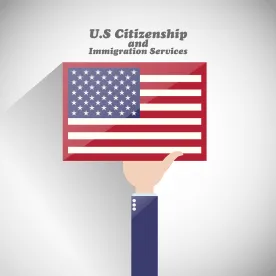On March 29, U.S. Citizenship and Immigration Services (USCIS) announced that it will expand its premium processing service to include additional immigration benefit case types, pursuant to a final rule issued by the Department of Homeland Security (DHS). Currently, premium processing is available only for employers filing Form I-129, Petition for a Nonimmigrant Worker (most commonly for H-1B, L-1, O-1, or TN classifications), and Form I-140, Immigrant Petition for Alien Workers for certain employment-based classifications. Under the new rule, premium processing services will also be available for Form I-539, Application to Extend/Change Nonimmigrant Status; Form I-765, Application for Employment Authorization; and additional classifications under Form I-140. The rule is intended to implement the Emergency Stopgap USCIS Stabilization Act passed by Congress and is part of USCIS’s efforts to reduce existing backlogs and provide needed relief to Employment Authorization Document (EAD) cardholders.
While the rule will become effective on May 31, 2022, it will be implemented in a phased approach over a three-year period. For fiscal year 2022, USCIS plans to begin implementing premium processing for Form I-539 Application to Extend/Change Nonimmigrant Status, Form I-765 Application for Employment Authorization, and certain Form I-140 classifications (EB-1C classification as a multinational executive or manager, and EB-2 classification as a member of professions with advanced degrees or exceptional ability seeking a national interest waiver).
The new classifications of petitions and applications that will be eligible for premium processing will be phased in as follows:
FY2022:
-
Form I-140 EB-1 Multinational Manager
-
Form I-140, EB-2 National Interest Waiver (NIW)
-
Form I-539 Change of Status to F, J, or M visa status
-
Form I-765, Application for Employment Authorization for F-1, OPT, and J exchange visitors
FY2025:
-
Form I-539 Change or Extension of Status for E, H, L, O, P, and R dependents
-
Form I-765, Application for Employment Authorization for additional applicants (not yet defined)
Until the final rule takes effect, premium processing will continue to be available only for I-129 petitions and certain I-140 petitions. While waiting for new case types to become eligible for premium processing, employers can do the following:
-
Check the USCIS website, where USCIS will post when each new case type becomes eligible for premium processing as well as any applicable conditions for those case types;
-
Review their pending cases and, in collaboration with their Mintz legal team, identify any relevant cases that the company may want to upgrade to premium processing, once eligible;
-
File extension of status and work authorization applications as early as possible based on current USCIS backlogs in case processing.
In addition, USCIS also announced on March 29 its continued progress toward a temporary final rule that will expand the automatic extension of EAD validity for certain EAD renewal applicants so that these individuals do not lose their work authorization while their EAD extension applications are pending.
Mintz will continue to monitor USCIS’s progress towards its stated goal of reducing backlogs and lengthy processing times for EAD applicants and alert clients of any significant developments.
Kami Groom contributed to this article.



 />i
/>i

